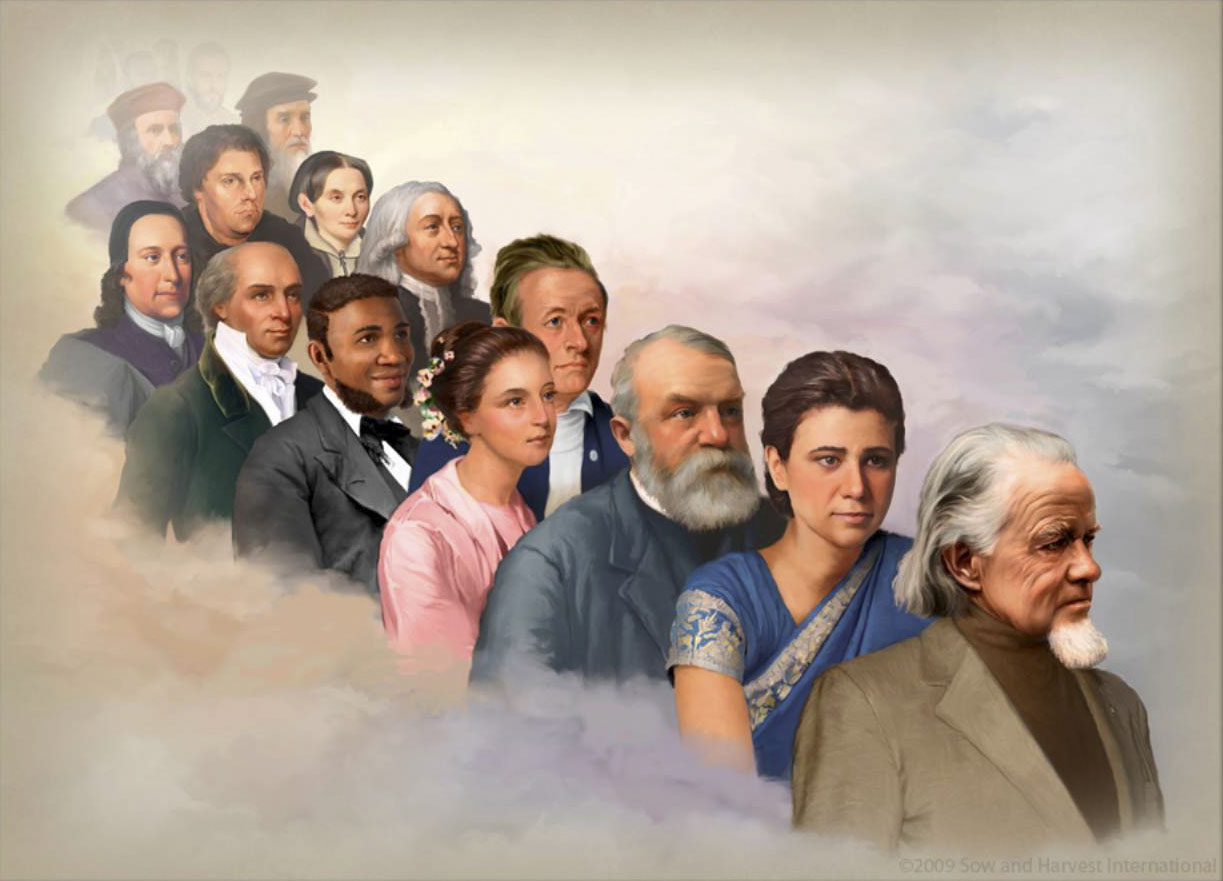Reflections From God's Story of Hopeनमूना

2000 Years of Church History
For more than 1900 years, since the death of John, the last living apostle, God has preserved His Church through much hardship and adversity and has caused it to spread all around the world.

At any given time, a segment of God’s Church has suffered persecution somewhere in the world while another has been blessed abundantly somewhere else in the world. That being understood, the story of God’s Church from the early days after Jesus’ return to Heaven and the death of His first followers, could be told in general terms in seven paragraphs describing briefly seven periods of church history.
During the first 200 years (A.D. 100-300), the Church suffered Persecution throughout the Roman Empire. Men like Polycarp, a disciple of the Apostle John, were burned at the stake. Justin Martyr, while pursuing various schools of philosophy, was influenced by the fearless conduct of Christians such as Polycarp as they faced persecution. Martyr, too, was later tried (in 165) and beheaded for his faith.
Emperor Constantine’s embracing of the Christian faith and establishment of religious tolerance in the Roman Empire brought a period of Popularity (300-500). Augustine, considered the greatest influence in the ancient Western Church, became a believer in Jesus Christ at age 32 partially through the faithful prayers of his devoted mother, Monica. The Church Councils of Nicea and Chalcedon, taking place during this period, declared that God’s Son is true God (not created), and that Jesus was fully man and fully God, respectively.
A period of Corruption (500-1300) ensued as the Bishop of Rome emerged as a pope over the entire Catholic Church, exerting great influence. Papal edicts and church traditions were elevated above the authority of the Bible, creating false doctrines and practices. Differences in doctrine and practice between churches centered in Rome and Constantinople resulted in an East-West Schism. Interestingly enough, it was during this time of corruption that Muhammad of Mecca claimed he received a message from God, bringing the birth and rise of Islam. In response, many Western “Christians” led militant Crusades to free the Holy Land from Muslim Turks.
Wycliffe, (b. 1328) one of the earliest opponents of papal authority, wanted all to have the Bible in their own language, so he translated the Latin Vulgate into English in 1382. His work and influence initiated a period of Reform (1300-1600) in which Martin Luther, the Anabaptists, and others challenged nonbiblical practices and returned to early church practices. Along with the influence of these brave men and women, the Gutenberg Press contributed greatly to the Reformation by making copies of the Bible available to everyone.
Skepticism followed. During this period (1600-1850), Immanuel Kant (German philosopher) and Friedrich Schleiermacher (theologian known as the “Father of Modern Liberal Theology”) encouraged movement away from seeing truth as revealed by God to the idea that truth comes through experience and reason.
An exciting return to Outreach (1725-1900) was led by the Moravians (started in Czechoslovakia by John Hus and later led by German Count Zinzendorf) who spread the gospel to many countries as early as the 1700s. Englishmen John Wesley and William Carey furthered the effort founding mission societies, while American D. L. Moody developed a practical ministry training school.
The Church has now moved into an era that could understandably be called Divisions (1850 to Present). Cults such as Mormonism, Christian Science, and Jehovah’s Witnesses have sprung up and spread around the world. Pentecostalism attempted to return to what they call apostolic faith by embracing the gifts of tongues and healings. Fundamentalism rose up in an effort to counter the effects of liberal theology in churches and seminaries. While these divided the Church, others now teach that all religions point to God (Religious Pluralism). Still, Christianity has spread around the world, but a Global Shift of its influence is moving from North and West to South and East.
धर्मशास्त्र
यस योजनाको बारेमा

Listen to professional recordings of all 100 narratives from the book, Reflections from God's Story of Hope—an audio journey (6½ hours total) through the Bible's Big Story of redemption, from Genesis through Revelation. The audio narratives interweave music, sound effects, and dramatic voices from 20 professional voice actors.
More
सम्बन्धित भक्त्ति पाठहरू

धर्म-शास्त्रीय पद कण्ठस्थ (नयाँ नियम) - आवाज नेपाली

क्रिसमस तपाईंको हृदयमा छ - 14 दिने भिडियो योजना

इस्टर नै क्रुस हो - 8 दिने भिडियो योजना

परमेश्वरको आर्मर - प्रेरितहरूको कार्य

ख्रीष्टको अनुसरण गर्नु
इस्राएल र यहूदी जातिप्रति घृणा

क्रिसमस तपाईंको हृदयमा छ - 7 दिने भिडियो योजना

ब्यक्तिगत स्वार्थ र चिन्तालाई पराजित गर्नु

आज्ञा दिनुहोस् – जीरो सम्मेलन
